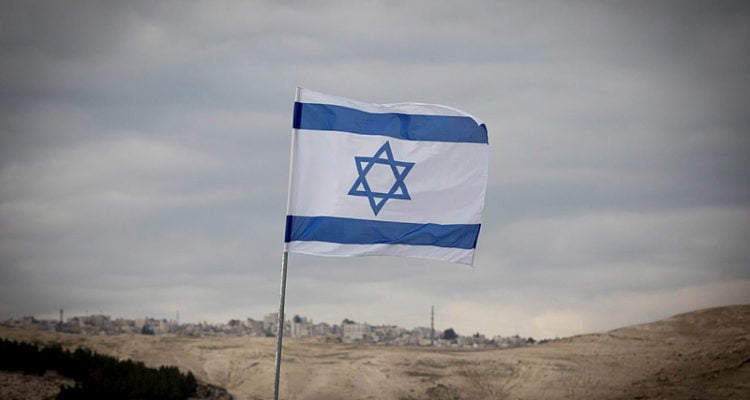‘Area E1′ – Israel’s destiny has rarely been more explicitly defined.
By Bill Mehlman, World Israel News
Geography in the Middle East is destiny.
Israel’s destiny has rarely been more explicitly defined than in its need to control and settle the 4.6 mile corridor known as ‘Area E1.’
It’s the land link between Jerusalem and Ma’ale Adumim with its 40,000 residents. It’s also the IDF’s only secure access to the strategic Jordan Valley.
The link is in jeopardy. First, by President Trump’s looming ‘deal of the century,’ and second, by Israel’s own failure to take action against festering issues that threaten its ability to develop E1.
These include the Bedouin outpost Khan al-Ahmar, which Israel’s High Court of Justice approved for demolition, but which Israel’s government has yet to remove, and now a second, unnamed Bedouin outpost only a few 100 feet from Khan al-Ahmar, which the government too appears impotent to handle.
Adjoining the eastern slopes of Jerusalem, beyond the Mount of Olives, E1 was initially targeted for development in 1995 by then Prime Minister Yitzhak Rabin.
Though contained within Israeli-controlled “Area C” of Judea and Samaria, save for a very prominent police station, all Israeli construction in the quadrant has been on hold since 2009, attributed by some to alleged Obama administration sympathy with Arab charges of a scheme to further “Judaize” Jerusalem.
Oxymoronic as that might sound, beyond providing “the only safe route by which Israel can mobilize troops from the Mediterranean coast to the Jordan Valley” in an emergency. This may include an aggressive move by Syria, Iran or a combination of the two from the east.
There’s no question that Jewish settlement of E1 checkmates further discussion of dividing Jerusalem by locking off its eastern portion from surrounding Arab populations to its west.
Secondarily, as columnist David Weinberg notes in the Hebrew daily Israel Hayom, E1 is “the last significant piece of unsettled land in the Jerusalem envelope, the only place where tens of thousands of homes can be built to overcome Israel’s serious housing shortage.”
Bar-Ilan University Professor Efraim Inbar, a fellow at the Middle East Forum, has a message for those who argue that Israel’s peace treaty with Jordan combined with the technological ability to launch precision strikes from a distance have lessened the Jordan Valley’s importance as a first line of defense.
“You are engaging in a dangerous strategic fallacy,” he warns. It ignores among other things, he adds, “the immense potential for further political upheaval in the Middle East and the possible destabilization of Jordan’s Hashemite monarchy .”
He could add to that the threat of an emboldened Syria, with or without Iran, to reboot the eastern front as a credible threat.
Weinberg avers that Israeli security rests on three fundamentals: strategic depth, the room to wage war and room for effectively combating terrorism.
The room to wage war is provided by the 4-to-9 mile wide Jordan rift valley. Its 900-to-1,400-foot mountains on its western edge, he points out, “create a physical defensive barrier traversable only through five mountain passes. Even a limited IDF force deployed in the valley,” he concludes, “should be able to defend against an attack from the east.”
And that, Weinberg submits, “leads us back to building in E1.”
Paraphrasing Inbar, he believes that “Israel must move from a policy of security based on international agreements and diplomatic guarantees to one of agreements based on security provided by Israeli forces deployed in defensible spaces.
“We have to think of defensible borders not only as markers of security needs, but as building blocks that guarantee peace treaties will be sustainable,” he said.
The ball is in Israel’s court. “The question of whether or not to build in the settlements shouldn’t depend on who is in the White House or Iran’s nuclear program,” Jerusalem Post editor Yaakov Katz contends in a recent Friday column.
“It should be a decision based on what is right for Israel. Israel has a unique opportunity with Trump in the White House. The question is whether it is fully making use of it.”




